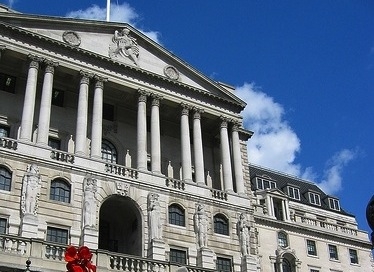
Experts react to BoE Bank Rate freeze

Experts from across the financial sector have reacted to yesterday’s decision of the Bank of England's Monetary Policy Committee to maintain the bank Rate at 0.75%.
The expected freeze pointed to Brexit uncertainty or fears of a ‘no-deal’ scenario, according to analysts.
Simeon Willis, chief investment officer at XPS Pensions Group, said: “This result is highly unsurprising.
“Nothing has really changed in terms of the UK’s economic prospects since the MPC’s last decision to keep rates the same in December - the direction of the economy is still dogged by the potential of a no-deal Brexit.”
Charles Hepworth, Investment Director, GAM added: “As widely expected, the BoE committee overwhelmingly remain stuck in the headlights of the Brexit juggernaut bearing down on the UK economy.
“Nine members voting for no change led to a rare unanimous decision to do nothing.
“The accompanying inflation report was perhaps the most of interest - the BoE cut its GDP growth forecast from 1.7% in 2019 to 1.2% and warned the Brexit damage to the economy was increasing with a predicted slump in investment. Sterling slumped 50bps on the downbeat outlook vs the dollar.
“The market now sees almost no likelihood of a rate hike in the UK in 2019, so Carney in his roughly 6 and a half year time as Governor has managed just the one hike (if you ignore the emergency post referendum knee-jerk cut and subsequent hike a year later).”
Ben Brettell, Senior Economist, at Hargreaves Lansdown said: “Nobody thought for a minute that interest rates would change, so any intrigue was always going to come from the accompanying minutes and forecasts.
“The minutes noted the Bank still sees the need for higher interest rates in the coming years, but its growth forecasts were cut to 1.2% this year (from 1.7%) and to 1.5% next year (1.7%).
“Domestically, a tight labour market means wages are growing at their fastest pace in a decade. This would usually prompt policymakers to consider raising rates, but a deteriorating global growth outlook and mounting Brexit uncertainty have put paid to any thoughts of tighter policy for now.
“We’re already seeing a real economic impact from Brexit concerns, with weaker-than-expected January PMI readings released this week, and news today that house prices cooled again last month. This sent sterling to a two week low around $1.29 ahead of today’s announcement from the BoE, and it fell a further third of a cent in the immediate aftermath.”
He said the future was “highly uncertain” and pointed to betting markets only offering a 30% chance the UK will leave the EU bloc on 29 March.
He added: “If and when we do leave, an orderly Brexit could see the Bank refocus on wage growth and raise rates later this year, though markets currently price this as a 50/50 chance.
“A no-deal scenario would likely see sterling fall 5-10%, causing a spike in inflation, but I’d expect the Bank to look through this and cut rates to support the economy.”
Barry McAndrew, fixed income senior portfolio manager at State Street Global Advisors, EMEA, said: “The committee seem happy to wait for some clarity on Brexit negotiations and the economies response to it, before making their next move.
“While increasing wage costs have been in keeping with their hawkish bias, it has been complicated by a deteriorating global backdrop. Patience can be expected to prevail until some of these uncertainties subside.”
